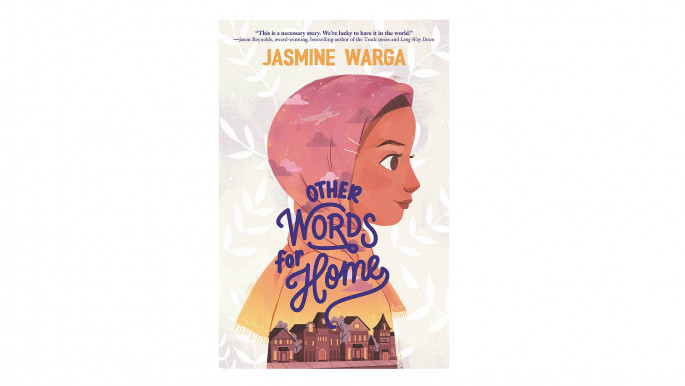Grief, guilt and sisterly bonds: A Pure Heart
"I could never love anyone as I love my sisters," says Jo March in Louisa May Alcott's classic novel Little Women.
But anyone familiar with the story of the March sisters, and with Jo and Amy's arc in particular, will know that love among sisters is complicated; it can be fraught, filled with moments of misunderstanding, disconnection and even hatred.
That complicated relationship is what is explored by Rajia Hassib in her new novel A Pure Heart, about two Egyptian sisters, Rose and Gameela, who have grown apart as their lives have taken them down different paths.
The book opens in the days after Gameela's death in a suicide bombing. Rose, an Egyptologist who married an American journalist and moved to New York, has returned to Cairo briefly to be with her parents. In a moment of grief, she gathers together some of Gameela's belongings and takes them back to America with her, where she sifts through him, hoping to piece together her sister's life.
As she does, she realises Gameela was hiding secrets from Rose and her parents; she'd quit her job in the months before her death, and she was romantically involved with someone.
How did the religious Gameela, who donned a headscarf against her family's wishes, manage to deceive so many people about the realities of her life, Rose wonders.
 |
How did the religious Gameela, who donned a headscarf against her family's wishes, manage to deceive so many people about the realities of her life |  |
A Pure Heart skips between Rose in the present, trying to come to terms with her sister's death and, more crucially, her life, and Rose and Gameela in the past.
 |
|
| Read more from The New Arab's Book Club: Other Words for Home features the strong Muslim girl we've been looking for |
We see Rose meeting her husband Mark, and we spend time with Mark as, years later, he returns to Egypt after the 2011 revolution to write a series of profiles, including one on the man – then a boy – who will make and detonate the suicide bomb that kills Gameela.
It's this connection that eats away at Rose, who wants to blame Mark for Gameela's death. Surely, if Mark had never interviewed that boy, Gameela would still be alive today?
But, as Hassib illustrates in the story, it's not just one decision that led Gameela to be standing outside the police headquarters when the bomb went off, it's a series of interconnected decisions plus a political situation that no one could have predicted.
Of course, Rose isn't able to comprehend this in her grief, focused only on how her and Mark's actions and inactions could have prevented Gameela's demise.
A Pure Heart rarely shows us Gameela and Rose together, and when the pair do interact on the page, it's often to disagree, particularly over Rose's marriage to Mark.
The later years of their relationship is a continuous stream of aborted text messages and calls, of moments where one thought about reaching out but didn't. Would a moment of true connection between Rose and Gameela have changed the path of Gameela's life?
The novel does give us the benefit, as readers, of being privy to a Gameela that Rose does not know. We get answers to all the questions that Rose is asking herself about her sister, and see exactly how Gameela came to be killed.
That might sound like the novel ties up loose ends nicely, but A Pure Heart is less a story about what happened to Gameela, and more about Rose reconciling her and Gameela's differing lives, and about the lives of women in Egypt.
 |
Would a moment of true connection between Rose and Gameela have changed the path of Gameela's life? |  |
As much as Rose wishes she could figure out Gameela's life in the same way she puts together clues to figure out the lives of ancient Egyptians, nothing is that neat. A Pure Heart is a novel that asks Rose, and us, to consider what it means to love someone and then grieve them, even if you didn't know them fully.
Stories about sisters, it seems, are all the rage these days, given the critical and commercial success of Greta Gerwig's adaptation of Little Women. Alcott's story is ripe for retelling because stories about sisters are always relevant. But if you're looking for a story about sisterly bonds, then A Pure Heart is honest, rich and doing something new.
Sarah Shaffi is a freelance literary journalist and editor. She writes about books for Stylist Magazine online and is books editor at Phoenix Magazine. She is a judge for the Jhalak Prize 2019. Sarah is editor-at-large at independent children's publisher Little Tiger Group. She regularly chairs author events, and is co-founder of BAME in Publishing, a networking group for people of colour in publishing.
Follow her on Twitter: @sarahshaffi





 Follow the Middle East's top stories in English at The New Arab on Google News
Follow the Middle East's top stories in English at The New Arab on Google News


